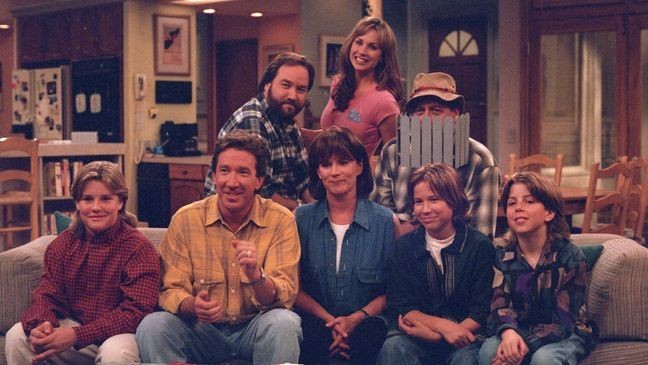
The Ghost of Binford Past: Jenna Elfman's Whisper of a Home Improvement Reunion
The landscape of television is a perpetually shifting canvas, where new stories are painted daily, yet the echoes of beloved classics often resonate louder than any fresh tune. In this era of reboots, revivals, and interconnected universes, the merest whisper of a reunion can send ripples of excitement through the collective memory of an audience. Such is the current buzz surrounding Jenna Elfman and her tantalizing hint at a Home Improvement reunion within the forthcoming second season of Tim Allen’s new sitcom, Shifting Gears. This isn't just about a potential cameo; it's an illustrative moment that speaks to the enduring power of nostalgia, the intricate threads of sitcom legacy, and the delightful promise of seeing old friends inhabit new, yet familiar, worlds.
For a generation, Home Improvement was more than just a sitcom; it was a comforting hum in the background of countless 90s living rooms. Tim "The Tool Man" Taylor, with his grunts, his mishaps, and his perpetually wise neighbor Wilson, became a cultural touchstone. The show perfected the art of the family sitcom, blending slapstick humor with genuine heart, and grounding its larger-than-life protagonist in the relatable struggles of family life. Its appeal endures, not just for the laughs, but for the warmth and a sense of a simpler time it evokes. To even suggest a return to this universe, however fleeting, is to tap into a wellspring of cherished memories for millions.
Jenna Elfman’s connection to Home Improvement, while not as central as the main cast, is significant. She graced the Binford set as Andrea, a brief but memorable love interest for Brad (Zachery Ty Bryan) in the fifth season. Her appearance was a snapshot of a burgeoning talent, soon to become a household name with Dharma & Greg. Now, decades later, the idea of Elfman stepping back into Allen’s comedic orbit, particularly on a show that feels like a spiritual successor, is rich with thematic potential. Shifting Gears, with Allen at its helm, already possesses a familiar rhythm, focusing on family, cars, and a patriarch who, much like Tim Taylor, navigates life with a unique blend of confidence and chaotic charm. It’s a stage perfectly set for echoes of the past.
The "hint" itself is a masterstroke of anticipation. It's not a definitive announcement, but rather a playful prod, a half-smile and a knowing glance that allows the imagination to run wild. Will Elfman reprise her role as Andrea, perhaps now a successful professional who crosses paths with Allen’s new character, potentially creating a comedic clash of generations? Or will she play an entirely new character, her presence serving as a subtle nod to the shared comedic history between the two actors, a meta-commentary on the journey from the 90s to today? The ambiguity is part of the allure, transforming a simple casting possibility into a tantalizing mystery box for fans.
This potential reunion is illustrative of several trends in modern television. Firstly, it highlights the immense value studios place on established intellectual property and the power of star chemistry. Tim Allen and Jenna Elfman share a comedic lineage, and reuniting them, even if briefly, leverages that existing goodwill. Secondly, it speaks to the audience's insatiable appetite for nostalgia. In a world often perceived as complex and uncertain, the comfort of revisiting beloved characters and universes offers a soothing balm, a bridge to simpler times. Finally, it demonstrates the evolving nature of the cameo. No longer just a fleeting appearance, these reunions often carry significant emotional weight, providing a poignant "where are they now?" for characters and actors alike, allowing audiences to witness the passage of time and the enduring bonds of creativity.
The possibility of Jenna Elfman’s appearance in Shifting Gears Season 2 is more than just a casting note; it’s a moment pregnant with meaning. It's a whisper from the past, promising a future where the lines between cherished memories and new narratives delightfully blur. It’s an illustration of how television, in its constant evolution, remains deeply connected to its own history, offering viewers the chance to once again grab their metaphorical toolbelts and lean in, hoping for just a little bit "more power" from the magic of a reunion.